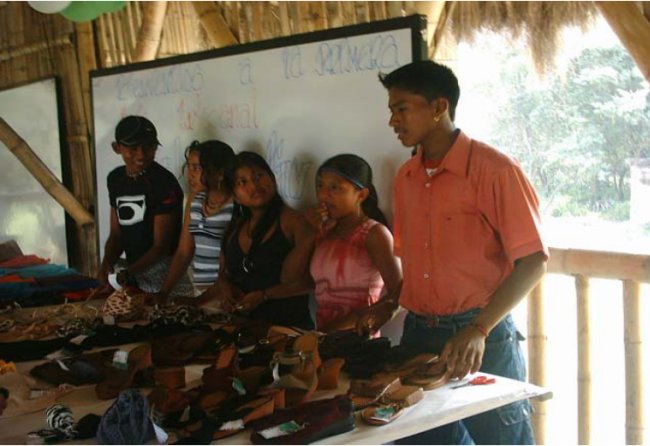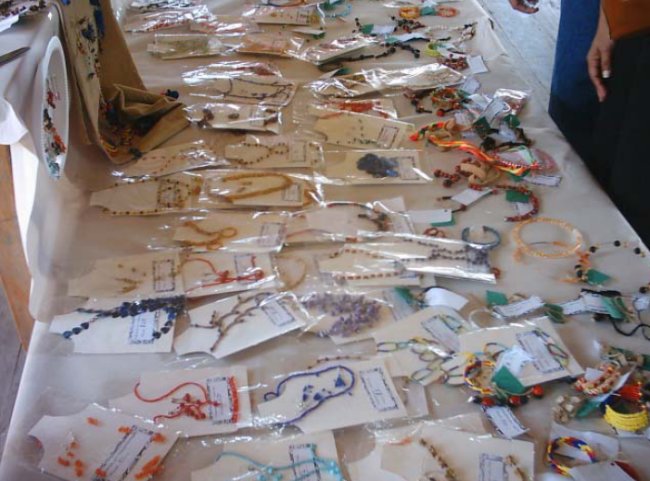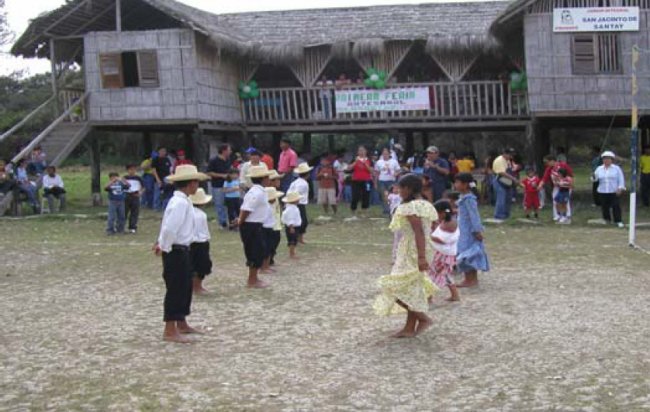Ecuador: Humedal Isla Santay, "capacitación de las mujeres en actividades económicas alternativas"
News from Wetlands for the Future

La Fundación Malecón 2000, a través del proyecto WFF/03/EC/1 "Contribución al mejoramiento de la calidad de vida de la población del humedal Isla Santay a través de capacitación de las mujeres en actividades económicas alternativas" ha logrado capacitar al 31% de la población femenina y a 9 % de la población masculina de la isla ecuatoriana Santay en actividades productivas sustentables, tales como tejido, costura, artesanías y microempresa. Estas actividades han aumentado los ingresos de las familias en la comunidad.
 Los resultados del proyecto se dieron a conocer en una Feria Artesanal, en la que se dio inicio al proceso de promoción y comercialización de sus productos. Estas actividades poco a poco han logrado disminuir la crianza de cerdos en la isla, actividad que ha causado impactos negativos en los recursos naturales del humedal. Gracias al apoyo de diversas instituciones, y al programa de capacitación del Municipio de Guayaquil "Aprendamos" se le ha dado continuidad al proyecto.
Los resultados del proyecto se dieron a conocer en una Feria Artesanal, en la que se dio inicio al proceso de promoción y comercialización de sus productos. Estas actividades poco a poco han logrado disminuir la crianza de cerdos en la isla, actividad que ha causado impactos negativos en los recursos naturales del humedal. Gracias al apoyo de diversas instituciones, y al programa de capacitación del Municipio de Guayaquil "Aprendamos" se le ha dado continuidad al proyecto.
The Malecón 2000 Foundation, through its project WFF/03/EC/1 "Contribution to the improvement of the quality of life of the population near Santay Island, through the training of women in alternative economic activities" has achieved the training of 31% of the female population and % of the male population of the Ecuadorian Santay island, a Ramsar site since 2000, in productive and sustainable activities including weaving, sewing, and handcrafting. These activities have since then been increasing the income of the families in the community.
The results of the project were presented in a Handicraft Fair, in which the process of promotion and commercialization of the products started. The economic alternatives have gradually reduced the breeding of pigs in the island, an activity that used to generate important negative impacts on the wetland. The project has continued with the support of various institutions and the training program of the Municipality of Guayaquil "Aprendamos".



The Secretariat of the Convention on Wetlands (Ramsar, Iran, 1971), the U.S. Department of State, and the U.S. Fish and Wildlife Service support the Wetlands for the Future Fund (WFF) training initiative for the Western Hemisphere, first begun in 1997. This activity promotes the implementation of the concept of "wise use" of wetlands through the strengthening of the capacity of countries to manage their wetland resources in perpetuity and by contributing to the integration of wetland conservation and management with the development process. All proposed activities must be in line with the principles, recommendations and guidelines of the Ramsar Convention. For more information about the WFF, see http://ramsar.org/wff/caxref:4158.